Book reviews
Reviews of some of the books I have read this year!


Agnes at the end of the world
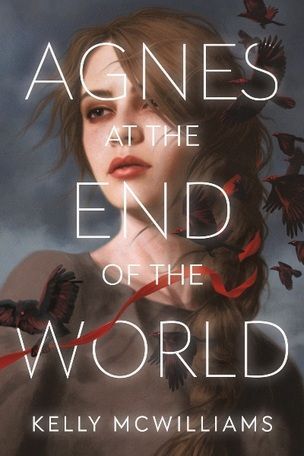



Slight spoilers ahead! I’ll start with positives.
This novel wasn’t quite what I expected. I went in thinking it was about a girl escaping a cult and fighting her way through an monstrous apocalypse. Which sounded super intriguing. But it wasn’t actually that… I did enjoy it overall. The writing style is absolutely captivating. It pulls you in and makes you want to keep listening (or reading) just to find out what happens next. The characters are well-developed and grow steadily throughout the story, which I really appreciated.
One of my favorite elements was the virus and the terrifying creatures it creates. They were creepy but also sounded kind of beautiful with their crimson crystal-like bodies. I was so ready for the characters to be chased by a human infected or even a horde of animals. But here’s the thing: the apocalypse and monsters are really just background noise. The story doesn’t actually dive into them really. There’s no being chased by infected creatures, no real horror or intensity from that side of things. I honestly thought this was going to be a survival story—dodging virus-infected monsters, fighting to stay alive, all that good apocalyptic chaos. But it’s not. The apocalypse is more of a vague setting than an active plot. And that’s disappointing.
Instead, this book is much more about one girl’s journey to understand her faith, deconstruct the toxic beliefs she was raised with, and ultimately find her own version of God again. Which is totally fine… if that’s what you’re looking for. But I feel as if it is not what the book presents itself as. It feels like it’s marketed as a horror/apocalypse story when it’s actually a deeply spiritual, introspective one. And yes I know the description does mention God and stuff but definitely doesn’t let you know that’s the main focus.
This book contains a lot more religious content than I anticipated. It’s not marketed as a religious or Christian novel, but it definitely leans that way. I get that the main character is escaping a cult that twisted religion to control its followers, so naturally, religion is going to come up. But the amount surprised me. God is mentioned frequently. And when Agnes mentioned her prayer space I really thought “Oh wow! They got magic in this novel.”
But it wasn’t magic, it was just that she’s literally a profit of God. Honestly, I think the book should be labeled as Christian fiction. And there’s nothing wrong with that at all—it’s just not what I thought I was signing up for.
It can be frustrating when a book feels like it’s going to be one thing, then turns out to be something quite different. Again, there’s nothing wrong with religious stories, but I wish it had been advertised more clearly. As an atheist, I found some parts a little uncomfortable, not because they were offensive, but because I wasn’t mentally prepared for them. If I had known in advance, I think I could’ve appreciated those scenes more for what they were.
As for the characters, I actually ended up liking Beth more than Agnes. Beth could be a bit annoying at times, but her journey of deconstructing her beliefs felt more believable and compelling. She struck me as a powerful character with the most growth. I also like Cory and how he grew. Agnes was also interesting, her struggle with identity and her “prayer space” journey added depth, but again, that’s where the heavy religious themes come in.
There were also a few plot threads I wish had been explored more. For example, Corey never got to talk to Agnes about the miracle that happened to him. When he saw her again at the church, I thought he would just throw his arms around her and thank her. But literally nothing happened between them, which was disappointing. And what happened to his dad? Is he just… off the hook? Also, I kind of wanted to see the cult’s prophet face actual consequences. I felt like him burning himself was an easy way out.
Overall, I’m a little torn. I binged this book like nobody’s business—it really did draw me in. I found the concept fascinating and the execution strong, but the religious overtones left me feeling conflicted. Not because they were “bad,” just unexpected. If it had been advertised as a Christian-apocalyptic novel, I think I would’ve gone in with different expectations and enjoyed it more fully.
So here’s my final verdict:
If you’re someone who believes in God and enjoys apocalyptic mysteries, you’ll probably love this. If you’re more sensitive to religious themes, it might catch you off guard. And if you’re looking for a fast-paced, monster-chasing, survival thriller—you won’t find it here. But if you can frame the spiritual stuff as metaphor or “magic,” like I tried to do, it’s still a worthy read. It’s written incredibly well, and for that alone, I think it deserves a chance. At least one listen or read.

The Downstairs Girl
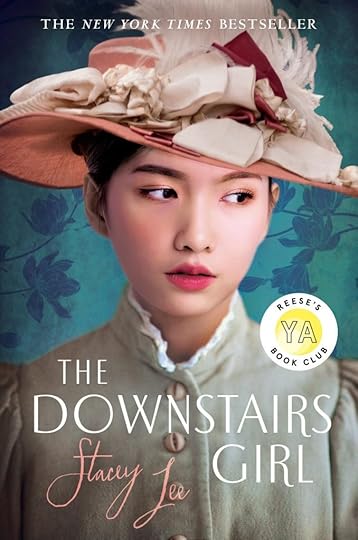




A beautifully written novel that tugs at your emotions in every way. I listened to the audiobook, and Emily Zeller did a fantastic job narrating. She brought each character to life with distinct voices, and her tone was incredibly soothing, honestly, I binged it! I also own the paperback, and I recommend both formats.
Set in 1890, the story doesn’t shy away from the harsh realities of racism and sexism. It can be hard to hear at times, but it reflects the truth of that era. The hatred directed toward Jo and others made my blood boil, but Jo’s resilience is what truly stands out.
She’s emotional, determined, and fearless, even when she’s afraid, she never stops trying. Her strength in the face of cruelty and injustice is moving and inspiring. She keeps pushing forward, no matter how many walls are put in her way.
The story was hard to put down. I constantly wanted to hear more and was often shocked by what came next. The plot is full of twists and turns that feel natural and engaging, and every character is thoughtfully written.
Minor Spoilers Ahead
My only small critique is the ending: it felt a bit sudden. While most things were wrapped up, I still had questions. What happened between Jo and Nathan? Did she grow closer to Caroline? And her mother… I just wanted a little more there. Not a bad ending at all, just left me curious.
Overall, I highly recommend The Downstairs Girl. It’s beautifully written, filled with strong characters, and set in a rich, immersive world. It offers hope, heartbreak, and bittersweet joy, all wrapped in a powerful story of resilience.

ALL SYSTEMS RED





I’ll admit, it took me a little while to get into this book. The beginning felt a bit slow, maybe even a little dull—but once things picked up, I found myself genuinely intrigued and eager to figure out what was really going on. The story being told from the bot’s point of view was a clever twist that kept things fresh and unique.
I really appreciated the short, straight-to-the-point chapters. There’s not a lot of filler here—every page serves a purpose and adds something interesting to the narrative. It’s not a nonstop action ride, but there’s just enough suspense, mystery, and occasional bursts of action to keep things engaging.
I’ll be honest—I expected a bit more, mostly because my sister hyped it up so much. That said, it was still a solid read. If you’re into sci-fi, mystery, or futuristic AI stories, it’s definitely worth checking out at least once.
And with a show adaptation on the way, I’m actually pretty excited to see how it all translates to the screen. The ending also leaves the door wide open for more, which I always appreciate. If you’re looking for a quick, intriguing sci-fi adventure, this one’s a good pick.

Map to the unknown
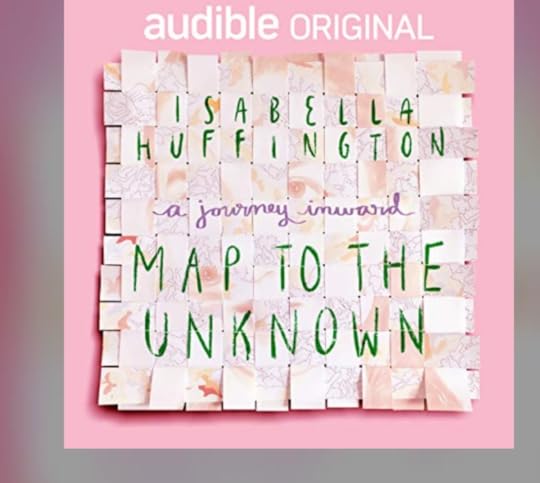




I was diagnosed with a chronic illness last year, and it’s one of the most isolating experiences I’ve ever gone through. You fight so hard just to get doctors to take you seriously—to listen when you say something isn’t right, and when one finally does, you think maybe things will start to get better. But sometimes… they don’t. Sometimes, there is no fix. No cure. Just the reality that this is your life now.
That’s what led me to pick up this book, and I’m so glad I did. From the very beginning, it had me hooked, I couldn’t stop listening. I was invested, hoping for a happy ending, rooting for some kind of resolution. But what struck me most was how real it felt. Like my own story, there was no magical cure, no easy answer. It was honest. And painful. And validating.
One line near the end really hit me: the more we fight it, the worse it gets. That truth is hard to swallow, especially when you’re newly diagnosed and grieving the life you thought you’d have. But acceptance, that painful, unglamorous word… is the beginning of something better. Not perfect. Not easy. But better.
Living with a chronic illness is hard, and it’s okay to say that. But books like this help remind us that we’re not alone. That our stories matter, even the messy, unresolved ones. If you’re struggling or searching for understanding, this book is a powerful, emotional companion on that journey.

The Witch of Tin Mountain
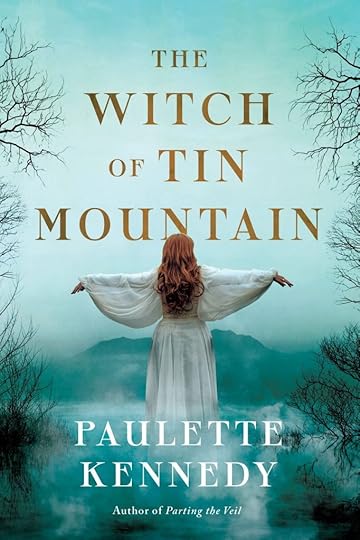




I really enjoyed Witch of Tin Mountain! While it wasn’t exactly what I expected going in, it turned out to be a pleasant surprise. I originally bought the book because—let’s be honest—the word “witch” caught my eye. I thought I was signing up for some classic horror vibes: a spooky witch haunting a town, terrifying the locals, the usual dark folklore stuff. But that’s not quite what this story is… and honestly, I’m glad it wasn’t.
Yes, there are witches, and there is magic, and some scenes definitely deliver on the terror, but the heart of this book lies in something much deeper. It’s really about two women, living in different timelines, each navigating their own personal struggles and discovering what it means to be strong in the face of pain, injustice, and isolation. It’s about identity, resilience, and the quiet power of embracing who you are, even when the world tells you not to.
There were a few slow moments, especially early on, but they never felt like filler. Instead, they gave me a chance to connect with the characters and appreciate the atmosphere the author was building. And once the story picked up, I was fully invested. I especially loved the dual timelines and how they intertwined, it added a layer of richness that made the plot even more compelling.
If you’re looking for a fast-paced, broomstick-flying, cauldron-bubbling kind of witch story, this might catch you off guard. But if you love a well-crafted, emotionally resonant tale with witches, history, a bit of mystery, and characters who find strength in their scars, this book is a must-read.
Highly recommend for anyone who enjoys layered storytelling, magic with meaning, and female-centered narratives that are more empowering than you’d expect. I’ll definitely be keeping an eye out for more from this author.

The Serpent & The Wings of Night
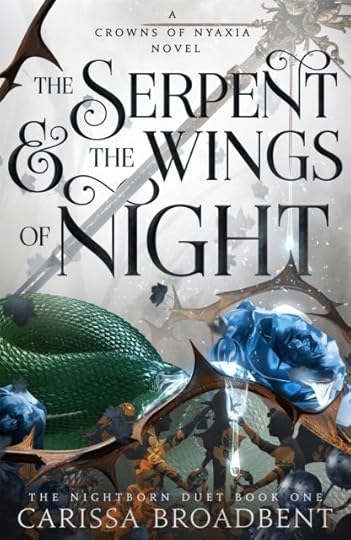




(Light spoilers ahead—nothing too wild, promise!)
I really enjoyed this novel. Vampires? Check. Magic? Check. A gritty, dangerous world filled with high-stakes trials and a touch of spice? Double check. The Serpent and the Wings of Night delivered a dark, apocalyptic vibe that had me hooked from the start. The world-building was immersive, brutal, and beautifully done. It’s not often you come across vampire stories that feel fresh, but this one had a unique spin I really appreciated, especially the winged vampires. Yes, winged. I was obsessed.
The trials and the adventure weren’t mind-blowingly unique, but they were still engaging enough to keep me flipping pages late into the night. There was a real sense of danger and unpredictability that kept me on edge, and I was constantly wondering what would happen next.
As for the main character, she had her flaws, and yeah, sometimes I found myself wanting to shake her a little, but she grew. She evolved in a way that felt real and earned, and by the end, I respected her journey. Give me a flawed heroine who learns and adapts any day over a perfect one who coasts through everything.
Now, I have to admit: I didn’t expect the spicy scenes that came later in the book. I thought I was getting more of a dark fantasy vibe, and then, bam! Some explicit content showed up like an uninvited but not entirely unwelcome guest. Not a complaint, just a heads-up for anyone going in blind like I did. The heat wasn’t overdone and fit well with the overall story arc.
There were definitely moments that felt a little unbelievable or dramatic, but by the end, everything tied together in a way that made sense. Sometimes fantasy needs a little extra drama—it’s part of the charm.
The book ends with lingering questions and just the right amount of cliffhanger to leave you wanting more (without feeling robbed). I got this book for Christmas, and it turned out to be an unexpected gift in more ways than one.
If you’re into dark fantasy, ruthless trials, morally gray characters, a touch of romance, and vampires with actual wings, you’re in for a treat. I’ll definitely be diving into the next one.

In The Waning Light
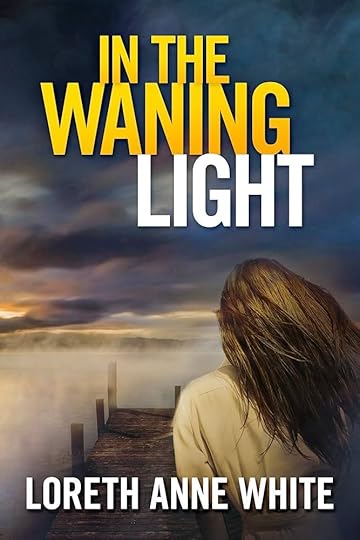




Spoilers ahead! You’ve been warned!
I’m a big fan of Loreth Anne White. I’ve read almost all her novels—except some of her early, steamier titles, and I truly think she’s an incredible storyteller. Her writing pulls you in with a grip that doesn’t let go, weaving emotional tension, mystery, and suspense so well that you have to keep turning the page. In the Waning Light is no exception, it’s engaging, fast-paced, and filled with some great twists that actually surprised me (which doesn’t happen often anymore!).
That said, while I did enjoy the story overall, there were a few elements that just didn’t sit right with me.
Let’s talk about Blake. Ugh. He was so overbearing. I get the whole “protective love interest” trope, but for me, it crossed into frustrating territory. He kept swooping in like some wannabe knight, trying to rescue the main character every time she turned around, and honestly, it felt more controlling than romantic. He came across like he still loved his ex more than he cared for his own son. That imbalance really rubbed me the wrong way, and I had a hard time rooting for him after that.
And can we please stop with the whole “first love is the greatest love” cliché? Life—and love—is so much more complex than that. It felt lazy and honestly kind of invalidating, especially in a book that explores trauma, loss, and rediscovery.
Also, I really struggled with the main character’s decisions toward the end. Walking almost directly into a trap? Come on. I know she was overwhelmed, but for someone so intelligent and resourceful, that moment felt out of character and frustrating. And then to top it all off, she gets back together with Blake. I just… no. If he had been honest about his brother from the start, lives could have been saved. Forgiving something like that? I don’t think I could.
But even with those issues, I can’t deny that the book was compelling. Loreth Anne White knows how to build a story that keeps you hooked. The mystery was layered, the setting atmospheric, and the emotional moments hit hard. I think a lot of readers will absolutely love the dynamics that didn’t work for me—and that’s the beauty of storytelling. We all connect with different things.
So yes, despite my personal gripes, I still think In the Waning Light is worth reading. It’s intense, emotional, and well-written—just be ready for a few characters that might drive you a little nuts along the way.

Thank you for reading! I highly recommend all these novels! And if you enjoyed this blog please like it and share it!
Check out my novel! Find it here!
Coushatta LaRue



